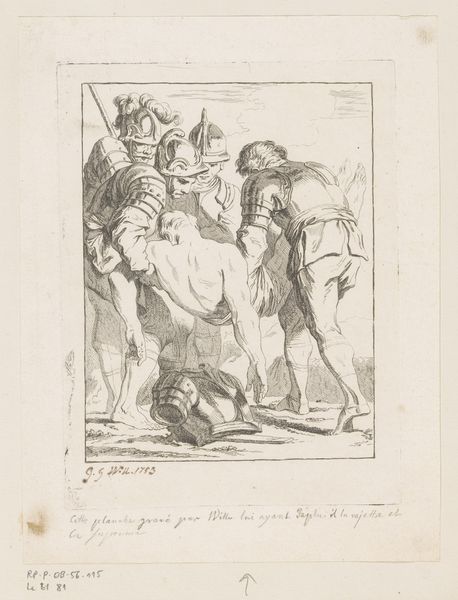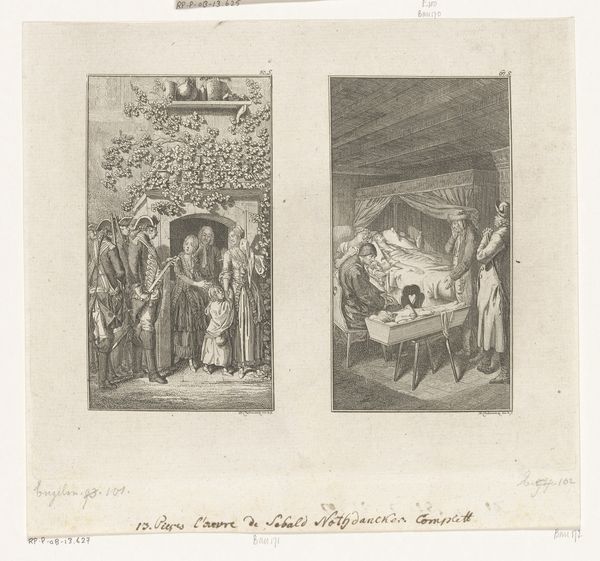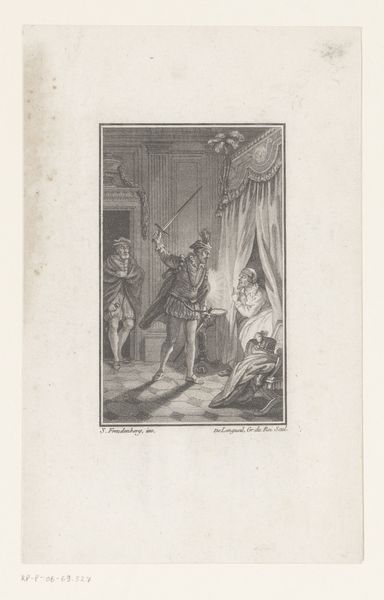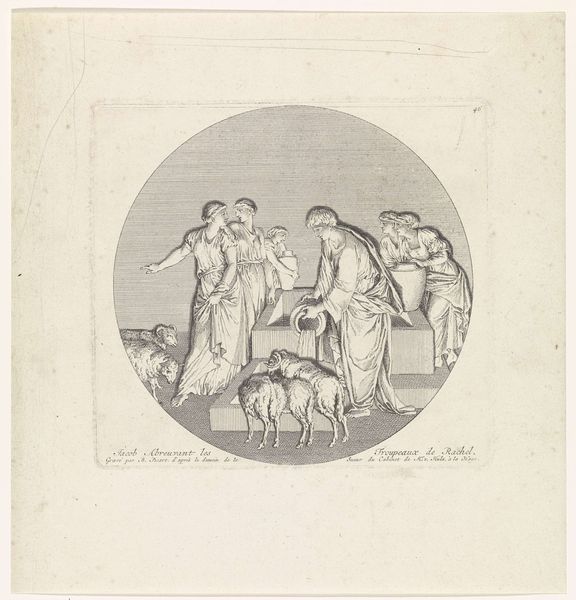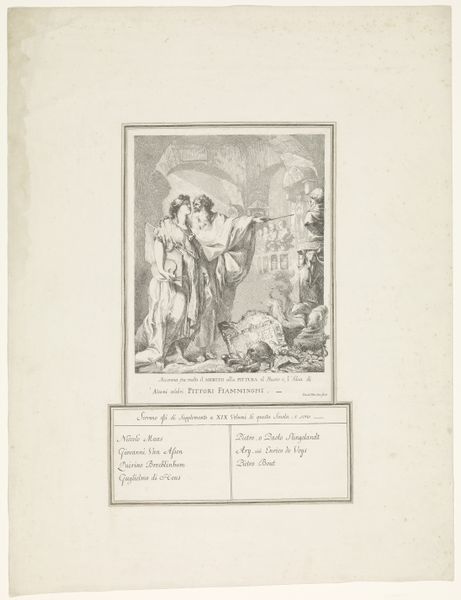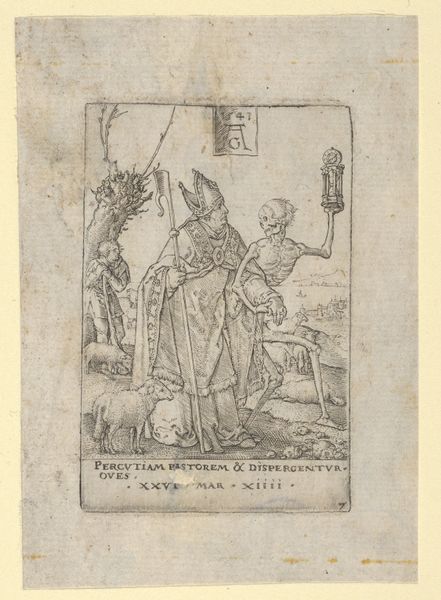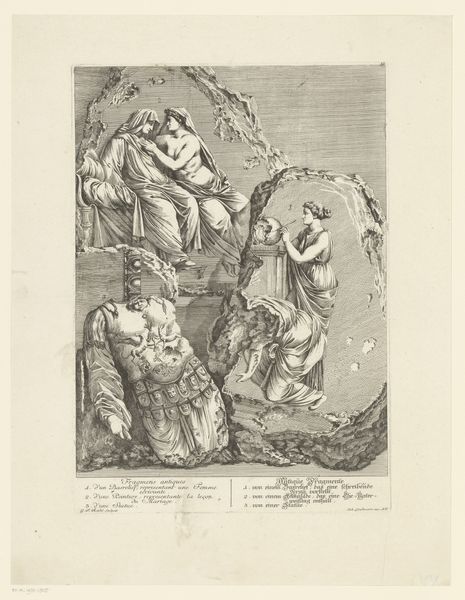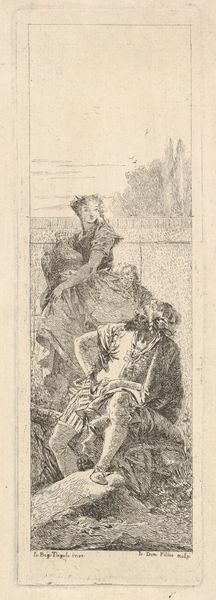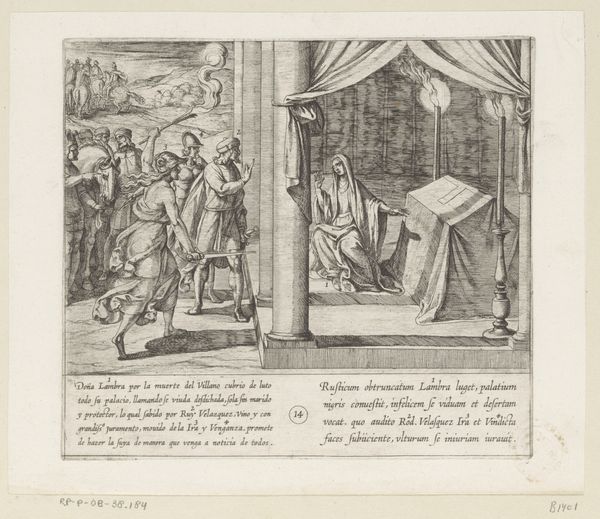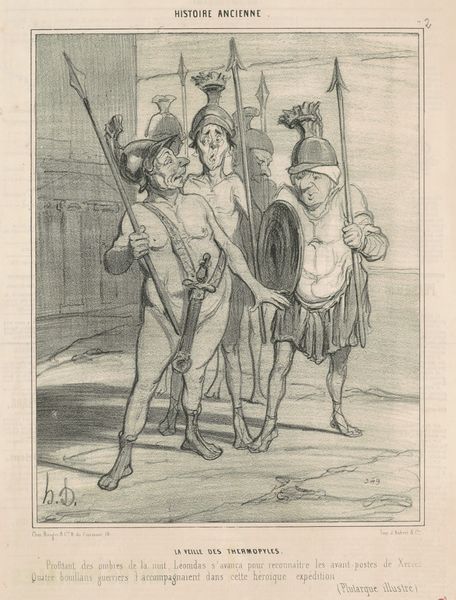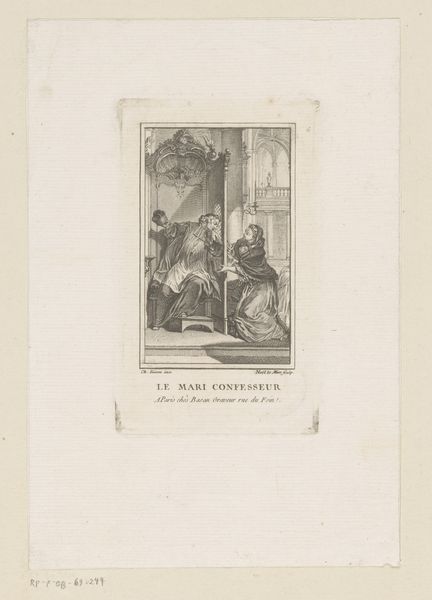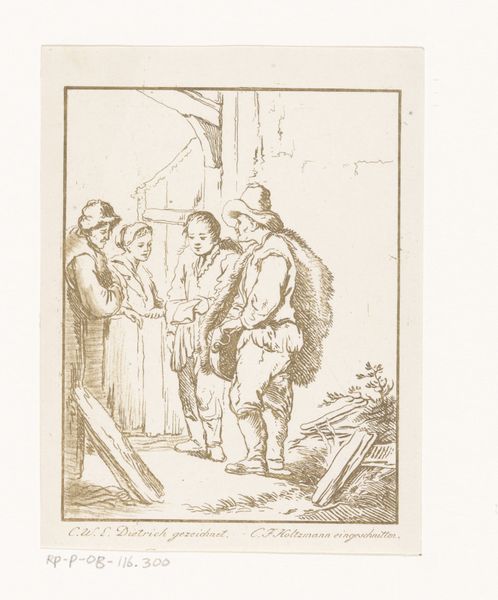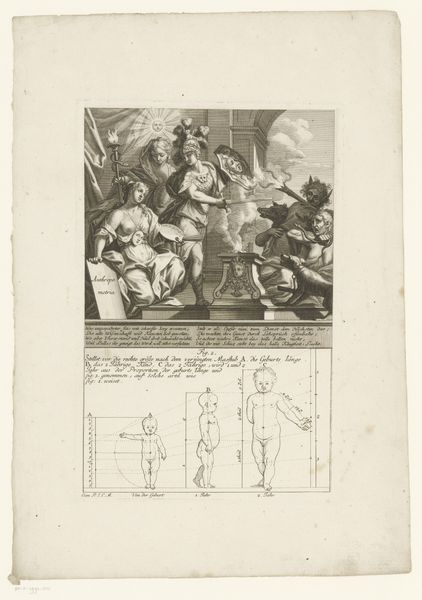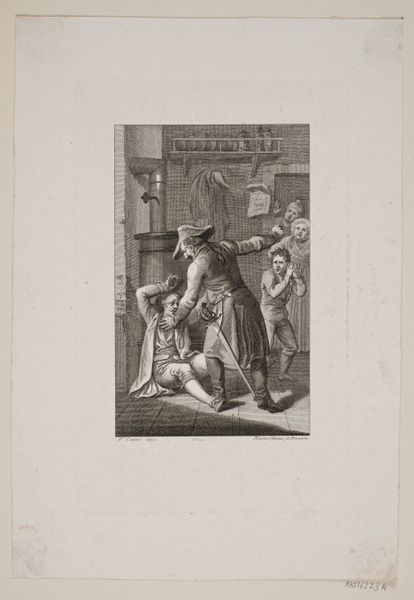
Marius At Carthage. Soldier, say to the senate that in my noble poverty I have taken for a chair a ruin And if I were in Sylla I would not be sitting here. (Pun attributed to M. Cousin), plate 35 from Histoire Ancienne Possibly 1842
0:00
0:00
drawing, lithograph, print, paper, graphite
#
drawing
#
narrative-art
#
lithograph
# print
#
caricature
#
paper
#
graphite
#
history-painting
Dimensions: 245.5 × 196 mm (image); 378 × 261 mm (sheet)
Copyright: Public Domain
Editor: We’re looking at "Marius at Carthage," a lithograph print by Honoré Daumier, possibly from 1842. It's hard to ignore the comical aspect, this prominent figure perched somewhat precariously… the drawing style feels like a barb aimed at something, doesn't it? What kind of story do you think Daumier is trying to tell here? Curator: Ah, yes! Daumier was a master of social satire, often skewering political figures and societal norms with his lithographs. "Marius at Carthage" isn't strictly history-painting but it plays on it. Notice the deflated ego conveyed in Marius’ posture; how he almost overflows the remnants of some glorious past, his "noble poverty" made utterly ridiculous by the surrounding signs? Daumier contrasts classical grandeur with the banal commercialism of 19th-century Paris. Clever, right? I wonder, what strikes you as particularly amusing in the juxtaposition? Editor: Well, the ads in the background feel really out of place. They undercut the intended solemnity. It’s like seeing a superhero do their laundry! Curator: Exactly! The setting reveals the artist’s opinion on how classical ideals stand up in a world preoccupied with... well, hairdressing salons! Daumier challenges us to think critically about who we idolize, and *why.* And I think you said the precarious perch also makes you uncomfortable? Editor: Yeah, a bit. I also think it's the scale. I realize now the figure in front of him may be a messenger. But if that messenger can look at a famous leader that way it does suggest the power of authority may be waning. Curator: I love your reading. Notice the relative smallness, the downcast expression… I suspect Daumier understood the enduring power of both humor and visual art, when turned toward larger goals. He provokes thought, even today, centuries removed! It would be easy to forget our politicians' limitations were it not for drawings like these, or his literary heroes Balzac and Cervantes. Editor: I guess I see Daumier's print differently now, not just as a funny picture but also a political commentary. Curator: Precisely. Isn't it remarkable how a simple drawing can open our eyes to history's echoes in the present?
Comments
No comments
Be the first to comment and join the conversation on the ultimate creative platform.
